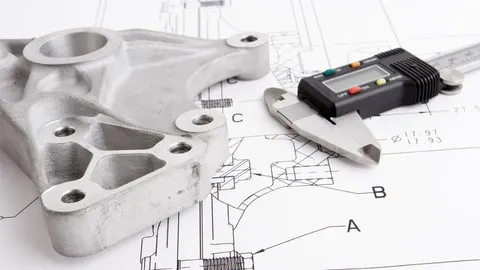
Wastewater Treatment And Recycling 
This online course covers the principles of wastewater treatment and recycling, including treatment processes such as physical, chemical, and biological treatment. Students will learn about the challenges and opportunities associated with wastewater recycling, and the potential benefits for water conservation and sustainability. ▼
ADVERTISEMENT
Course Feature
![]() Cost:
Cost:
Free
![]() Provider:
Provider:
Swayam
![]() Certificate:
Certificate:
Paid Certification
![]() Language:
Language:
English
![]() Start Date:
Start Date:
23rd Jul, 2023
Course Overview
❗The content presented here is sourced directly from Swayam platform. For comprehensive course details, including enrollment information, simply click on the 'Go to class' link on our website.
Updated in [April 12th, 2023]
This course provides learners with an in-depth understanding of Integrated Solid Waste Management (ISWM) and its role in Smart City development. Learners will gain knowledge on the generation rates and waste composition of Municipal Solid Waste (MSW), Construction and Demolition (C&D) Waste and Electronic Waste (E-Waste). They will also learn about the various waste management techniques such as collection, recovery, reuse, recycling, energy-from-waste, and landfilling. The environmental impact of waste management and its relationship to sustainable development and smart city development will be discussed. Learners will also gain an understanding of the challenges of waste management for smart cities, taking case studies from the first list of 20 smart cities identified in the first phase for this program. Additionally, learners will be introduced to the new rules with respect to C&D Waste and E-Waste Management and the challenges of managing these waste streams effectively. This course is beneficial for B.Tech/M.Tech/B.Sc/M.Sc/Research Scholars/Faculty members, engineers/professionals working in any area related to waste management, regulators (SPCB, CPCB and MOEF professionals) and policy makers.
[Applications]
This course provides a comprehensive overview of wastewater treatment and recycling, with a focus on Integrated Solid Waste Management aspects within the broad subject area of Integrated Waste Management for a Smart City. It is beneficial for B.Tech/M.Tech/B.Sc/M.Sc/Research Scholars/Faculty members from different institutions, as well as engineers/professionals working in any area related to waste management. Regulators (SPCB, CPCB and MOEF professionals) and policy makers will also benefit from this course.
The application of this course can be seen in the implementation of the Govt. of India initiatives such as Swachh Bharat Mission, Smart Cities as well as Make in India. It can also be used to understand the challenges of waste management for smart cities, taking case studies from the first list of 20 smart cities identified in the first phase for this program. Additionally, the course can be used to gain an understanding of the Construction and Demolition (C&D) Waste and Electronic Waste (E-Waste) management issues in India in general and for the smart cities in particular. The new rules with respect of C&D Waste and E-Waste Management can also be applied.
[Career Paths]
1. Wastewater Treatment Plant Operator: Wastewater treatment plant operators are responsible for the operation and maintenance of wastewater treatment plants. They monitor and adjust the plant's equipment and processes to ensure that the plant is running efficiently and safely. They also monitor the quality of the wastewater being treated and ensure that it meets all regulatory standards. As the demand for clean water increases, the need for wastewater treatment plant operators is expected to grow.
2. Recycling Technician: Recycling technicians are responsible for sorting, collecting, and processing recyclable materials. They also inspect and maintain recycling equipment, and ensure that all safety protocols are followed. As the demand for recycled materials increases, the need for recycling technicians is expected to grow.
3. Waste Management Consultant: Waste management consultants are responsible for providing advice and guidance to businesses and organizations on how to reduce their waste and increase their recycling. They also develop and implement waste management plans, and advise on the best ways to dispose of waste. As the demand for sustainable waste management solutions increases, the need for waste management consultants is expected to grow.
4. Environmental Engineer: Environmental engineers are responsible for designing and implementing solutions to environmental problems. They develop and implement plans to reduce pollution, conserve resources, and protect the environment. As the demand for sustainable solutions to environmental problems increases, the need for environmental engineers is expected to grow.
[Education Paths]
1. Bachelor of Science in Environmental Engineering: This degree program focuses on the design and management of systems that protect and improve the environment. It covers topics such as air and water pollution control, hazardous waste management, and environmental law. It also covers the development of new technologies to reduce environmental impacts. The degree is becoming increasingly important as environmental regulations become more stringent and the need for sustainable development increases.
2. Master of Science in Environmental Engineering: This degree program focuses on advanced topics in environmental engineering, such as air and water quality management, hazardous waste management, and environmental law. It also covers the development of new technologies to reduce environmental impacts. This degree is becoming increasingly important as environmental regulations become more stringent and the need for sustainable development increases.
3. Doctor of Philosophy in Environmental Engineering: This degree program focuses on research in environmental engineering, such as air and water quality management, hazardous waste management, and environmental law. It also covers the development of new technologies to reduce environmental impacts. This degree is becoming increasingly important as environmental regulations become more stringent and the need for sustainable development increases.
4. Master of Science in Sustainable Development: This degree program focuses on the development of sustainable solutions to environmental problems. It covers topics such as renewable energy, green building design, and sustainable agriculture. It also covers the development of new technologies to reduce environmental impacts. This degree is becoming increasingly important as environmental regulations become more stringent and the need for sustainable development increases.
Course Provider

Provider Swayam's Stats at AZClass
This course provides a comprehensive overview of wastewater treatment and recycling, including physical, chemical, and biological treatment processes. It also covers the challenges and opportunities associated with wastewater recycling.
Discussion and Reviews
0.0 (Based on 0 reviews)
Explore Similar Online Courses

SolidWorks 2017 Advanced Sketch Training

PHP Functions Course

Python for Informatics: Exploring Information

Social Network Analysis

Introduction to Systematic Review and Meta-Analysis

The Analytics Edge

DCO042 - Python For Informatics

Causal Diagrams: Draw Your Assumptions Before Your Conclusions

Whole genome sequencing of bacterial genomes - tools and applications

Educating for Sustainable Development (ESD) in Schools and Universities

Potable water treatment

Environmental Engineering: Drinking Water Treatment
 Related Categories
Related Categories
 Popular Providers
Popular Providers
Quiz
 Submitted Sucessfully
Submitted Sucessfully
1. What is the main focus of this course?
2. Who will benefit from this course?
3. What are the new rules with respect to C&D Waste and E-Waste Management?


Start your review of Wastewater Treatment And Recycling